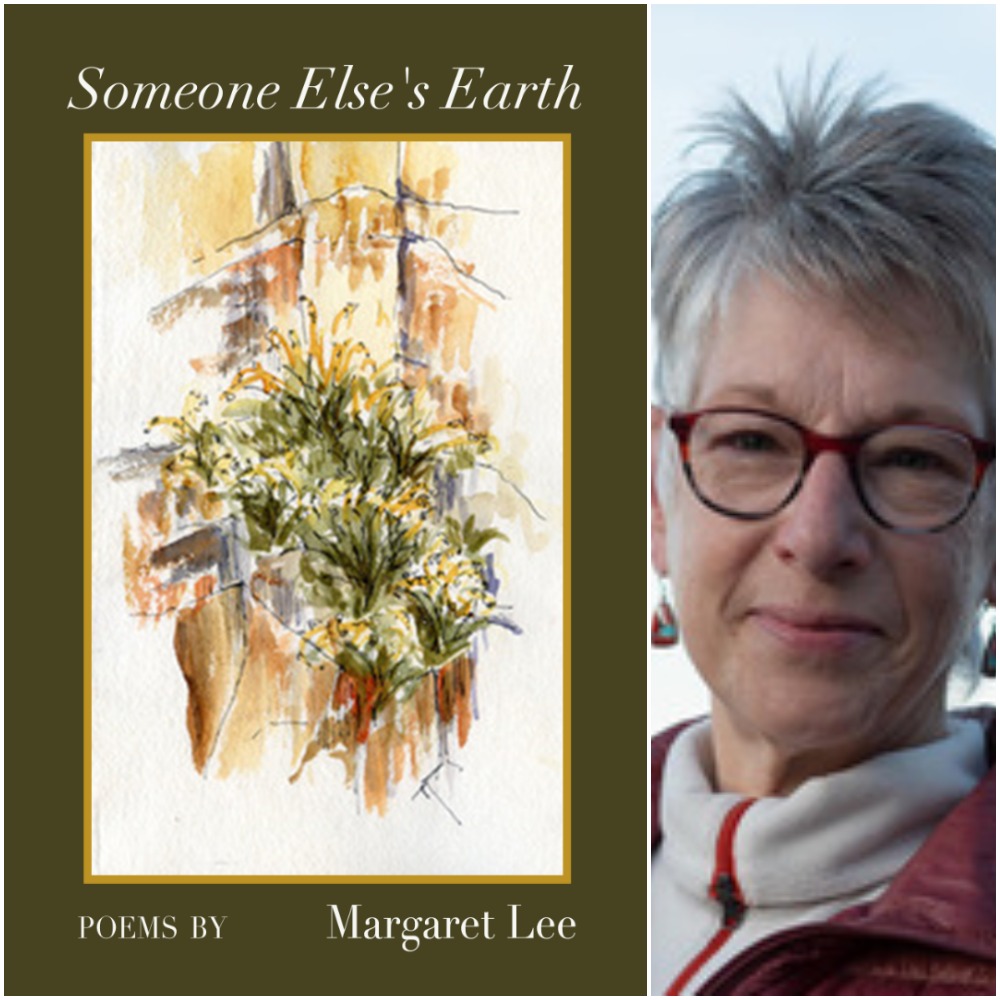Supremely inventive, exact, and shivery in its timely connection to the language of an ancient civilization, Margaret Lee’s Someone Else’s Earth takes us to a place and time we have never belonged yet have always belonged; to the beginnings of lyric expression and the telescoping in and out of the world of isolated despair. Reading this intricate and deeply moving series of poems as human existence is threatened to be erased, Someone Else’s Earth is constructed of bits and pieces of what remains of Sappho’s verse, almost as sherds of pottery being fit back together. Keep this book by your bed, under your pillow, within easy reach. Someone Else’s Earth awakens the Possible for everyone in every time.
–Susan Kay Anderson, author of Mezzanine and Please Plant This Book Coast To Coast.
Erasure is much in vogue these days as a literary technique, but Margaret Lee knows erasure is what has happened to almost all of the work of the ancient Greek poet Sappho. So, guided by the needs of our present moment, she has crafted a debut book of striking poems — erasure in reverse — poems that flesh out Sappho’s fragments into her own (Margaret’s) personal myth. Savor these poems and get a sense of an emerging poet whose life-long studies of ancient Greek language and literature inform a book displaying a love of language and deep thirst for purpose at a time we need it most.
–Paul E Nelson, Founder of SPLAB, Author of A Time Before Slaughter/ Pig War: & Other Songs of Cascadia
Whenever I read Sappho my heart breaks upon the fragments. With a few poems my heart takes off, but with many bits and pieces I am dashed upon the meagre debris. Margaret Lee adroitly, eloquently and relentlessly “knits up the ravell’d” remains of some of Sappho’s scraps, weaving nothing less than a stunning damask. In so doing, Lee caresses those ancient words, ingeniously transforming remnants into revelations. Sappho’s fragments become Lee’s starting blocks. Lee runs with what is left as her words gather their own momentum and reach triumphantly what the Greeks would recognize as word-weaving par excellence.
–Arthur J. Dewey, Professor Theology at Xavier University, is the author of Wisdom Notes: Theological Riffs on Life and Living.
Sappho’s lyrical poetry emerged in Greece more than 25 centuries ago, influencing early Romans like Horace and Seneca, and later poets who exploited her themes and syllabic patterns in their own work. Known as the Tenth Muse, she fascinated early European poets as well as modern scholars across the globe. Margaret Lee‘s debut collection does not attempt a rerun of the past, but instead riffs freely on Sapphic fragments in 21st century poems that are a delight to read. You will savor this delicious book.
–Sandra Soli, poet and author






Reviews
There are no reviews yet.